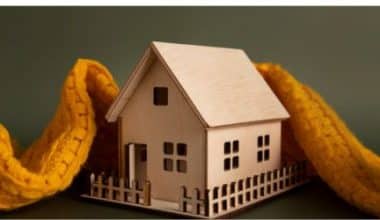Renters and homeowners alike can sympathize with the frustration of discovering water damage to their dwellings. particularly if it happens suddenly and damages your personal property. Tenants should know when their water damage insurance kicks in in the event of certain events. This article sheds light on how renters insurance covers water damage. Let’s dive in!
Does Renters Insurance Cover Water Damage?
Renters insurance might help you get your money back or replace your stuff if something bad happens to it. The specifics of your policy will specify the covered hazards (also known as “named perils” and “perils insured against”) in detail. There will be a listing of any risks that are not covered.
Your coverage is simple for most sorts of hazards. Almost any source of the fire, such as a youngster accidentally lighting a match or a nuclear weapon going off nearby, will result in an authorized claim if your possessions are lost in one.
A different story is water damage. Most of the time, renters insurance will cover certain losses brought on by water damage, but not others. Plumbing leaks are a typical source of water damage hazards; flooding and sewage overflow are common sources ofexclusions from coverage for water damage.
When Does Renters Insurance Cover Water Damage?
Damage or loss not caused by a designated peril will not be covered by your renters insurance policy unless you have an all-perils policy. A renters insurance policy would usually list 15 to 20 listed hazards, such as weather-related incidents, elemental perils, and malevolent human behavior.
If any of the following specifically listed risks for water damage cause damage or loss to your belongings, your claim is very likely to be accepted. These coverages particularly refer to damage to your property within; renters insurance does not cover damage to the structure itself; your landlord’s policy covers it. The following are situations whereby renters insurance covers water damage:
#1. Accidental discharge or overflow of water or steam
This risk is specifically associated with the presence of water or steam in your home as a result of typical, everyday activities. Water is typically required for your air conditioning or heating (think radiators), plumbing system, or automatic fire sprinkler system. Home appliances like dishwashers and washing machines are protected just as much as busted pipes.
Renters insurance policies typically cover both unintentional discharge and unexpected swelling, splitting, burning, or tearing apart of an object.
Possible exclusions under your policy include harm to the appliance or system that released the steam or water. Coverage may also not extend to repairs necessary because of mold and fungal growth as a result of water damage.
#2. Frozen water
The insurance will pay for repairs to your belongings if they were broken because of the weight of snow, ice, or sleet on the roof. That usually indicates that there was some sort of ice breach in the walls or roof.
Similarly, this coverage covers water running through your home’s HVAC system, plumbing system, or any of your domestic appliances. The renters insurance provider will pay you back if this water freezes and damages or destroys your possessions.
Keep in mind that some renters insurance providers might not consider frozen water damage a covered peril if you weren’t living in the home at the time of the damage or if the home was under construction, even if you took reasonable precautions to maintain heat in the building or remove the water from your appliances and systems.
#3. Rainfall
If rain enters your home because a hole was made in the roof or walls by a windstorm or hail, the damage will be covered under the windstorm and hail coverage clause. Water from leaks could seep into your possessions and destroy them. However, your renters insurance may not cover all types of leaks. Should the leak have resulted from rust or decay in the roof of your home, you could need to submit a claim to your landlord’s insurance, which addresses structural impairment.
There are provisions in certain renters insurance policies for damage resulting from a roof collapsing upon your possessions. Rain building up on the roof is one of the numerous reasons for the collapse that will qualify for payment. However, it’s vital to shop around for a policy that covers collapse by rainfall if it’s something you care about; some renters insurance policies have the collapse provision but don’t allow for collapse caused by water, unless it’s frozen water, as described above.
#4. The water damage caused another peril
It doesn’t matter what kind of water damage it is—a sump pump overflow, a flood, or something else—you won’t get paid for it. You may still make a claim for damages under the other covered loss, though, if the excluded water damage results in another kind of loss, such as theft or fire.
Read Also: HOW TO GET INSURANCE TO PAY FOR WATER DAMAGE: Simple Steps
When Water Damage Is Not Covered
The following situations are exempt from water damage coverage under your renters insurance policy:
#1. Flooding
Most of the time, water from the outside is not covered by renters or homeowners insurance. The alternative is to offer flood insurance as a stand-alone policy. If you are a renter in a region that is prone to flooding, you might want to consider getting flood insurance to safeguard your personal belongings against any possible harm.
#2. Risks that arise when you’re not residing there
Occasionally, insurers will include a condition in their coverage of normally insured dangers that states you would not be eligible for reimbursement if you were not residing at the address at the time of the incident. This is to make sure you’re taking the right safety measures against a specific risk, like blocking your windows in case of a hurricane or keeping your pipes hot.
#3. Sewer backups and sump pumps
Your basic coverage won’t cover any damage if water from your drains, sump pump, or other drainage system backs up into your home. However, if you’d want, we can include endorsements in your insurance that would apply to cases like this.
#4. Dangers that accumulate gradually
Some exclusions from coverage for losses caused by specified risks apply if the harm happened gradually over time, making it reasonable to expect a loss and take precautions against it. This is a typical warning for the burning, tearing, cracking, and bulging hazards as well as the artificial discharge, where damage such as rot, corrosion, and mold may already be present before the hazard causes harm or loss.
This exclusion, however, occasionally does not hold true if the mold or decay is hidden behind walls or above the ceiling, making it impossible for you to see it.
#5. Negligence or poor upkeep
Your insurance company might not pay for the damage if all the warning signals were present—for example, the continuous drip, drip, drip of a leaky pipe—and no action was taken to stop the water from spreading. It is contingent upon the particular situation. (For example, did you notice a leak and decide not to report it to your landlord? Has your landlord failed to address a leak that you reported?
How to Avoid Water Damage
It is impossible to completely prevent water damage. However, there are undoubtedly a few tricks that might lower the risk (and save you money on renters insurance). Check your apartment frequently for damage, cracks, leaking windows, and wet areas, especially after rainy spells. Even small damage can get worse over time and change into something really bad.
If you discover anything alarming, notify your landlord right away. Feel free to remind them if he doesn’t respond. Also install a water detection system, which can be purchased for under $50, or have your landlord do it for you. You should place the device near a location where water damage is common, such the basement or your washing machine. Once installed, it will continuously scan the area to aid in the early detection of water leaks. In the worst-case scenario, the device will notify you if it detects access to water.
Does Renters Insurance Cover Sewer Backup?
You might be concerned about whether damage to your personal belongings covered by your renters insurance will occur if a sewer backup occurs in your flat. If a sewage backup happens, your renters insurance won’t cover your personal belongings unless you’ve added septic backup, sump overflow, and sewer backup coverage to your basic policy.
How to Pay the Deductible for Renters Insurance
Prior to submitting a renters insurance claim, it’s important to consider your deductible. Try again before filing a renters insurance water damage claim if the worth of the items you’re attempting to recover isn’t enough to cover your deductible, which is normally between $500 and $1000, depending on your policy. In addition to your insurance not paying for anything below the deductible, submitting a claim could result in an increase in your premium.
Which Kinds of Water Damage Are Not Covered by Renters Insurance?
Your renters insurance may not cover every kind of water damage. In certain cases, your landlord’s insurance will cover water-related damage. In the event that a flood destroys the carpet in your first-floor flat and your landlord has building flood insurance, for instance, you won’t need to make a claim with your renters insurance.
Sometimes, certain kinds of water damage need their own insurance or benefits, or they might not be covered at all. When making a claim, be sure you understand what your renters policy covers.
Does Renters Insurance Cover Floods?
Consider getting a separate flood coverage if you reside in a floodplain or another area that is prone to floods. Renters insurance does not cover personal property in the case of a flood, so you may safeguard your possessions from flood water damage by obtaining your own flood insurance policy.
Which Kinds of Water Damage Do Landlords Insure?
Sometimes your renters insurance coverage won’t cover water damage; instead, your landlord will. Your landlord’s insurance will often only pay for damage to the unit; it will not assist with replacing your belongings in the event of damage. For example, your landlord is usually responsible for any water damage (stains on your walls, mold development) resulting from building maintenance concerns. A landlord’s policy, however, will differ depending on the several commercial policies that it covers.
Does Renters Insurance Cover Ceiling Leaks?
Yes, in most cases is the response. If your ceiling leaks and causes damage to your belongings, your renters coverage will cover it. Renters insurance only covers personal possessions; damage to the roof itself is the responsibility of your landlord or their insurance in that scenario. You are only covered, though, if the damage happens quickly and out of the blue. Therefore, your insurance would probably cover the damage to your things if it rains inside your home because a windstorm, hail, ice, or sleet made a hole in one of the walls or the roof of the structure.
However, as you were careless in this case, this would not be covered if you had failed to close your windows and the rain caused damage to your belongings. If your landlord has neglected to maintain the leak and it is rather old, there may also be problems with coverage.
Sure. Most renters policies cover damage from overflowing toilets or leaking bathtubs. Just be careful not to flush anything that shouldn’t be in the toilet or leave your tub running for an extended period of time. Even with renters insurance assistance, handling these situations can be extremely difficult.
What Coverage Does Renters Insurance Offer?
Usually, renters insurance protects your things from everyday dangers like theft, fire, loss, and more. It’s a sensible strategy for safeguarding your personal property investment. Coverage extends to your possessions while they are temporarily out of home, such as when you travel on vacation.
How Does Renters Insurance Protect Your Personal Belongings?
Generally speaking, this coverage guards against things taken from inside your rental or even stolen after a break-in. For instance, your renters policy’s personal property coverage can assist with replacing any lost or stolen personal goods, like a gaming system, from your vehicle.
Final Thoughts
Not only does renters insurance safeguard your possessions, but it also shields you from legal responsibility in the event that you harm someone else’s property. That implies your renters insurance should cover any water damage you’re responsible for.
- LEMONADE HOME INSURANCE REVIEW 2023
- DO I NEED RENTERS INSURANCE? Things to Know
- How Much Renters Insurance Do I Need?






